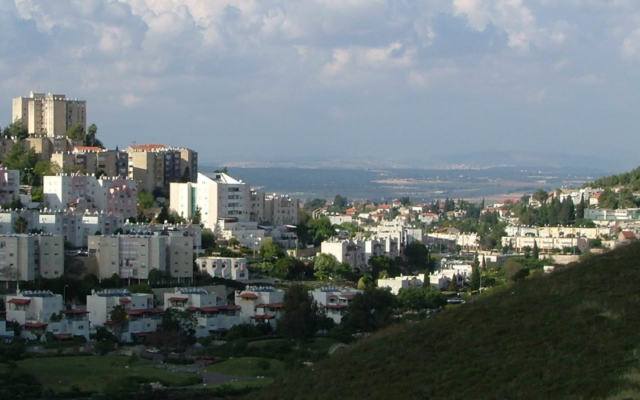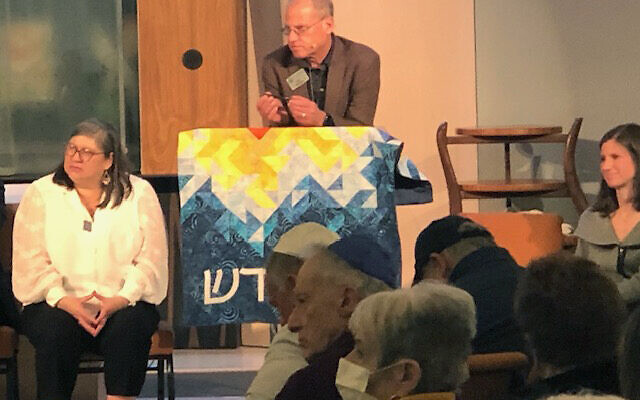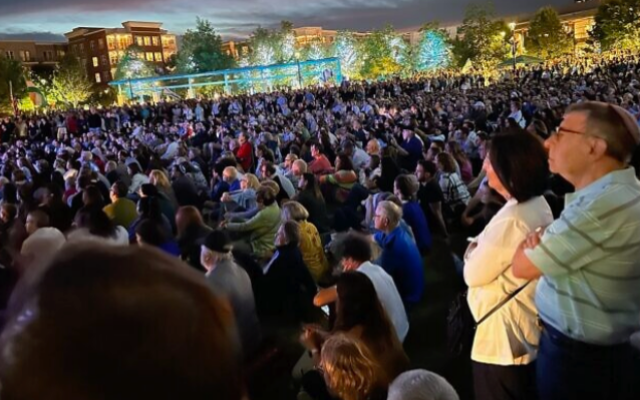Federation Raises $12M for Israel War Relief
New report details how the Jewish Federation of Greater Atlanta is helping to overcome the impact of the war on Israel and its people.

The Atlanta Jewish community has raised over $12.4 million over the past five months to assist Israel after the terrorist attacks of Oct. 7.
The fundraising effort is detailed in a 22-page report released this month by the Jewish Federation of Greater Atlanta. The emergency financial campaign is in response to what the Federation’s Chief Executive Officer Eric Robbins sees as a crisis that affects everyone. It has helped to transform the executive into not only the community’s fund-raising leader but also someone who is committed to healing the community’s pain.
“Every day is hard,” Robbins said. “But you wake up and you say, I’ve got to be there for the community. Like, I often call myself the chief healing officer right now, but I’m not even sure that we’re at a stage of healing. We might still be at a stage of processing or responding to the trauma.”

The multi-million-dollar campaign in Atlanta is part of a broad-based effort by Federations in the United States and Canada that has so far raised nearly $800 million for 472 relief organizations in Israel. The money has gone to support relief efforts in four primary areas to assist the nearly 240,000 Israelis who have been displaced or evacuated from their homes in the Negev and in Northern Israel. It has bolstered lifeline services such as food, clothing, and housing assistance for nearly half of that total who do not know when they will be able to return home.
It has also assisted hospitals and other medical facilities with direct care for more than a million people including those many individuals in Israel who are coping with the loss, injury or kidnapping of family members or friends. Finally, the Federation’s funds are helping to ensure a resilient economy and the rebuilding of Israel’s society.
The Atlanta Federation has primarily focused its local relief effort in Israel in the Yokneam-Megiddo region in the Lower Gallilee, about 25 miles southeast of Israel’s port city of Haifa. The area, which supports high tech manufacturing and agriculture, is a center for the resettling of Jews from Ethiopia and has recently seen several hundred evacuees from the community of Nahul Oz, which was devastated by the attack by Hamas in October.

According to Susie Mackler, the Peoplehood Manager for the Atlanta Federation, the support here has played an important role in rebuilding a sense of community.
“Our people-to-people partnership is more important than ever now that our community in Yokneam-Megiddo has been impacted by the events of Oct. 7. They have all been touched by this war, sending family members, sending children and husbands to defend Israel, volunteering in so many ways to help each other.”
The Federation, says Robbins, also has a job to do in support of those in Atlanta, who struggle to come to terms with what he describes as “Israel’s nightmare.”
“Our mission is to help in every way we can with the needs of the Jewish people in Israel, but we also need to give our community here a place to gather and to be together and to understand all that’s happening in Israel.”
Three days after the October attack, the Federation mobilized the community and attracted four thousand supporters of Israel to a rally in Sandy Springs, and the following month was part of the March for Israel in Washington, D.C. that brought 300,000 to the nation’s capital for the largest such event in American history.
Our mission is to help in every way we can with the needs of the Jewish people in Israel, but we also need to give our community here a place to gather and to be together and to understand all that’s happening in Israel.
Last month, Robbins led a group of 22 Atlanta leaders, including 14 local rabbis who visited Israel to experience firsthand, the emotional impact of the terrorist attack on Israel. He described it as a “very challenging trip” that was “tremendously hard” to experience, personally. But he sees it as one of the highlights of his career of service to the Atlanta’s Jewish community.
“Being there with such a diversity of leaders from our community gave us all an opportunity to process the experience together. It was comforting and it strengthened my optimism about the future for this community because we helped each other through it. We came back connected and we came back ready to lead the Atlanta community collectively as we deal with this ongoing crisis that affects us so deeply. So, it was a tremendous trip.”
But he emphasizes that, for all the money that has been raised and all the good that has been accomplished, the work of healing the impact of the events of Oct. 7 on the world and on Atlanta has only just begun.
“I think that we’re going to have to continue to give people the opportunity to come together,” Robbins emphasizes, “and mourn Israel and, mourn the losses that Israel has had. But also, to stand by Israel as this war continues.”



comments